Golden Week in Japan: A Celebration of Spring

Golden Week in Japan is one of the most anticipated and celebrated holidays in the country. It lasts from April 29 to May 5. During this time, there are several national holidays. It gives people in Japan a chance to take a break. They can relax, go on trips, and spend time with their family. But why is Golden Week so important? Let’s find out more.
History of Golden Week in Japan
Golden Week is a special time in Japan. It happens every year from April 29 to May 5. This week is full of holidays, and it’s one of the busiest vacation times in Japan. But do you know how Golden Week got its name? It all started in 1951.
Back then, a movie company called Daiei noticed that a lot of people went to the movies during this week. They made a lot of money, so they called it “Golden Week”. The name stuck, and now everyone in Japan knows about Golden Week.
During Golden Week, people celebrate four different holidays. They start with Showa Day on April 29, which used to be the birthday of Emperor Hirohito. Then, they have Constitution Memorial Day on May 3, Greenery Day on May 4, and Children’s Day on May 5. If any of these holidays fall on a Sunday, the next day becomes a holiday too. So, Golden Week can sometimes be even longer! Isn’t that cool?
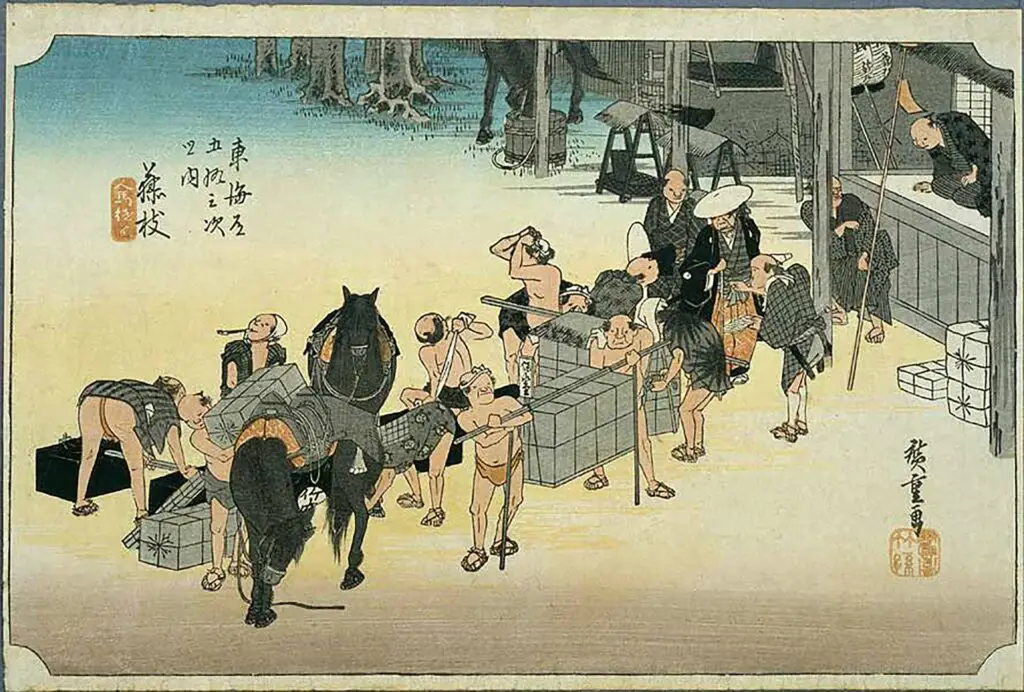
Names for Golden Week in Japanese
Golden Week is a famous holiday period in Japan. But did you know it has different names in Japanese? The most common name is “ゴールデンウィーク” (Gōruden Wīku), which is just “Golden Week” in English. But there are two other names that are also used.
The first one is “黄金週間” (Ōgon Shūkan), which means “Golden Week” too. The second one is “春の大型連休” (Haru no Ōgata Renkyū), which means “Long Spring Holiday Series”. These names are used because Golden Week happens in the spring, and it’s a long holiday period.
So, whether you call it “ゴールデンウィーク”, “黄金週間”, or “春の大型連休”, they all mean the same thing. It’s a time when people in Japan get to take a break from work or school, and enjoy some holidays. And now you know a little more about Golden Week in Japan!
Showa Day (April 29th)
Showa Day is a special holiday in Japan that happens on April 29. It’s part of the Golden Week, a week full of holidays. Showa Day is named after Emperor Showa, also known as Hirohito. He was the emperor of Japan from 1926 to 1989. The word “Showa” means “shining” or “bright” peace1. This day is meant to remember the time when Emperor Showa was in power.
It was a time of many changes for Japan. So, on Showa Day, people in Japan think about their history and how it has shaped their country
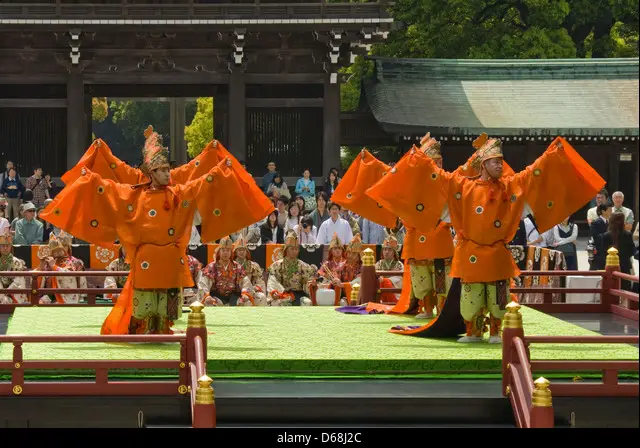
Constitution Day (May 3rd)
Constitution Day, or “Kenpō Kinenbi” in Japanese, is a very important day in Japan. It happens on May 3rd during Golden Week. But why is it so special? Well, on this day in 1947, the new constitution of Japan came into effect. This new constitution focused on peace and the well-being of its people. It replaced the old one, which was more about war.
So, on Constitution Day, people in Japan remember this big change. They think about how their country decided to choose peace over war. And that’s why Constitution Day is such an important part of Golden Week.
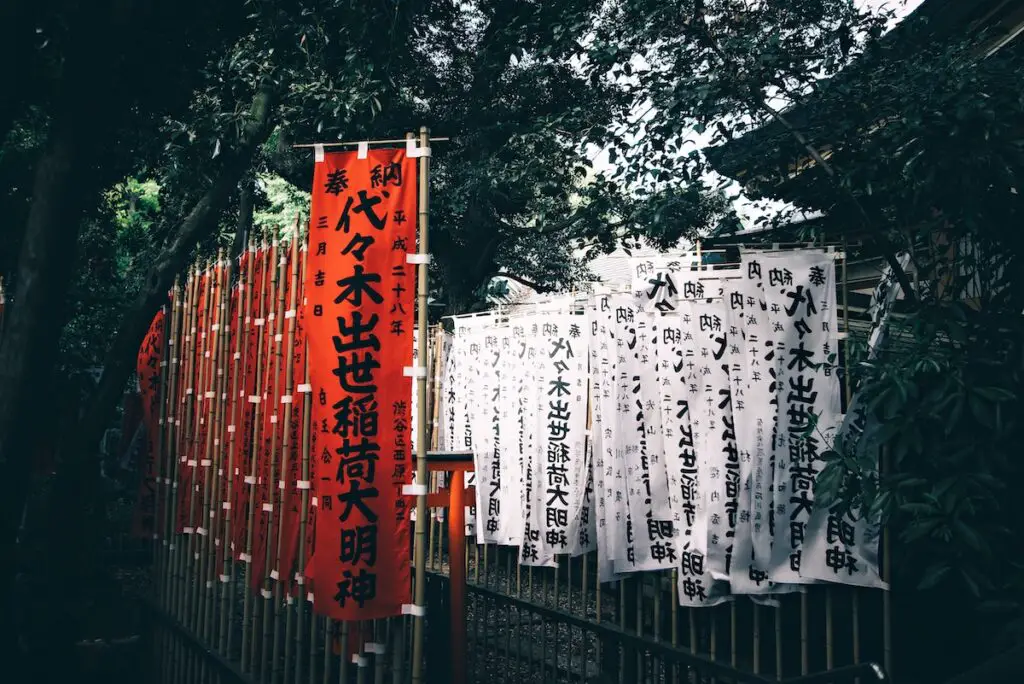
Greenery Day (May 4th)
Greenery Day is a day that celebrates the importance of nature and the environment in Japanese culture. It was established in 1989, following the death of Emperor Showa, who was known for his love of nature.

Children’s Day (May 5th)
Greenery Day, or “Midori no Hi” in Japanese, is a wonderful day in Japan. It happens on May 4th during Golden Week. This day is all about nature. People in Japan use this day to say thank you to nature and enjoy its beauty.
Greenery Day started as a way to remember Emperor Showa, who was the emperor of Japan from 1926 to 1989. He loved plants and nature, so they named this day after him. But now, it’s a day for everyone in Japan to love and appreciate nature.
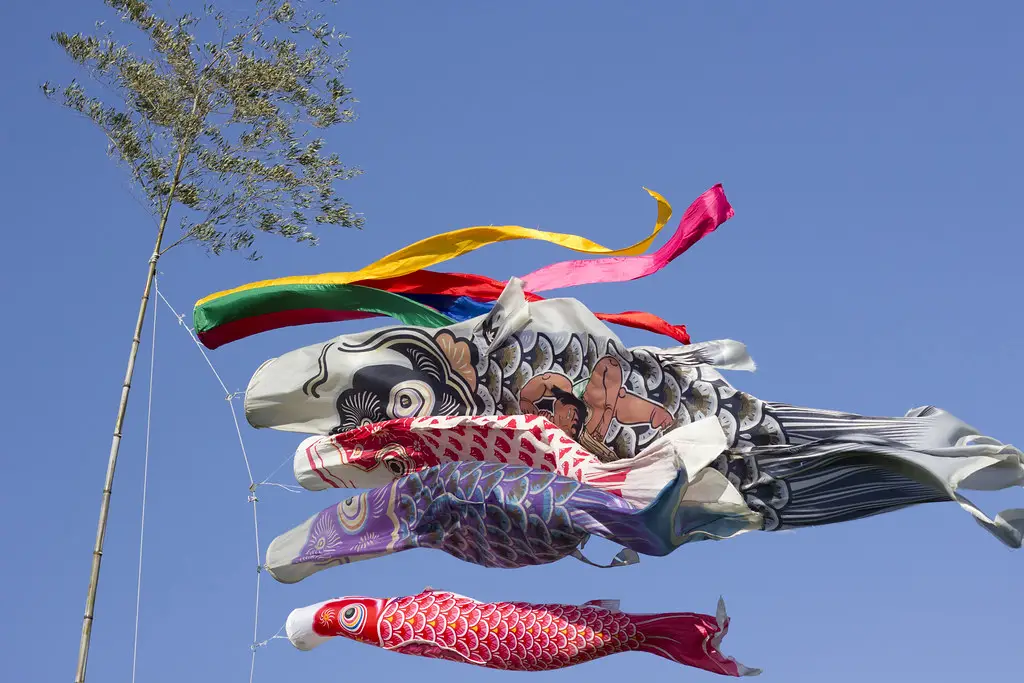
What Golden Week Means to Japanese People
Golden Week is a very special time in Japan. It’s a week full of holidays from April 29 to May 5. During this time, people in Japan get a break from work or school. They use this time to do fun things like going to the movies, traveling, and spending time with their families.
Golden Week is one of the busiest times of the year in Japan. Many people travel all over the country to visit family and friends. Some people also use this time to relax and enjoy nature5.
But Golden Week is not just about having fun. It’s also a time for people in Japan to think about their country’s history. Each holiday during Golden Week has a special meaning. So, during this week, people in Japan remember important events from their past.
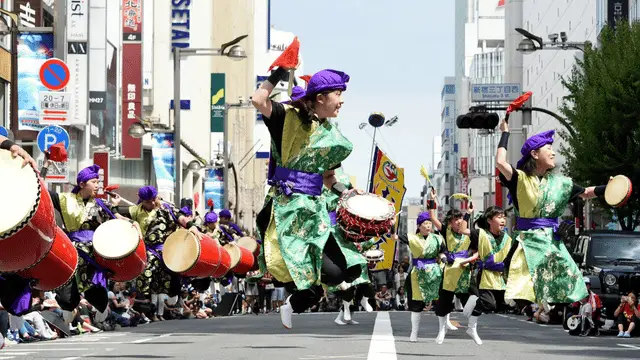
Festivals during Golden Week
Golden Week in Japan is not just a time for holidays, but also a time for fun and exciting festivals. There are many festivals held all over Japan during this week.
One of the most famous festivals is the Kameido Tenjin Shrine Wisteria Festival in Tokyo. Here, people can see beautiful wisteria flowers in full bloom. It’s a sight to behold!
Another popular festival is the Hakata Dontaku in Fukuoka. This festival is full of music, dance, and parades. It’s a great way to experience Japanese culture.
In Kyoto, there’s the Aoi Matsuri. This festival is one of the oldest in Japan and features a grand procession dressed in the style of the Heian court.
And in Gifu, there’s the Takayama Matsuri. This festival is known for its large floats and puppet shows.
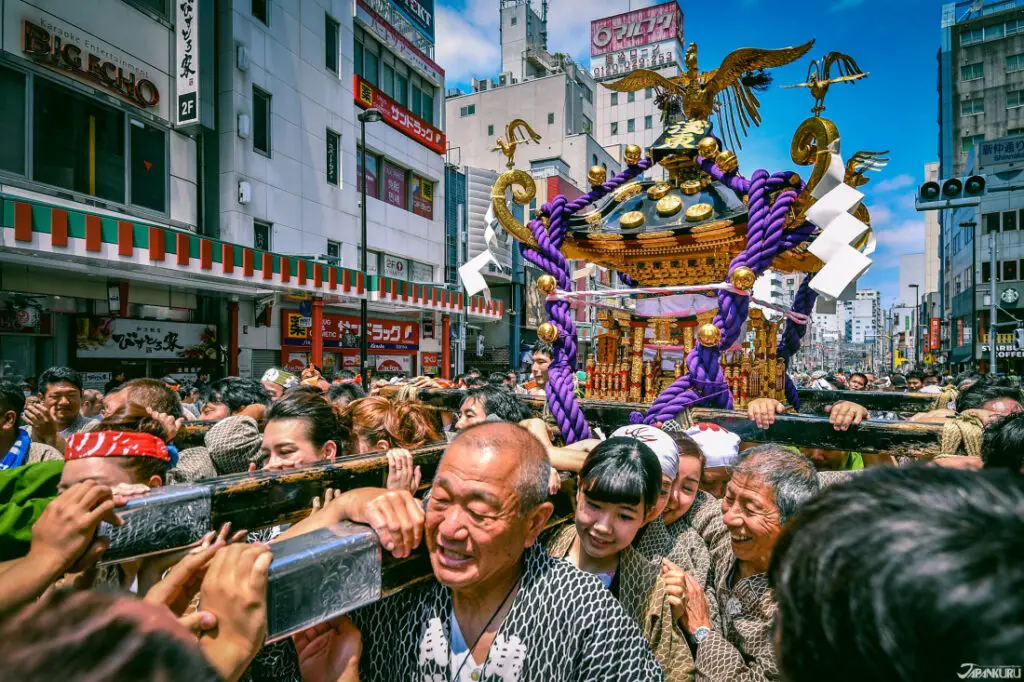
Other Information Related to Golden Week
Golden Week in Japan is a very special time. It’s not just about holidays, but also about spending time with family and friends. Many people in Japan use this time to travel and visit their hometowns. It’s a bit like the New Year period or the Obon festival, which is a Buddhist festival to remember one’s ancestors.
But there’s something else that’s interesting about Golden Week. Even though Japan has the most public holidays out of any developed country, Golden Week is the time when Japanese employees really get a break. With four days off in between weekends, some lucky workers even get those days in between off as well. So, Golden Week can sometimes be longer than a week!
Golden Week is also a big time for the movie industry in Japan. A lot of people go to the cinema during this week, which is why it was named “Golden Week” by a movie company. So, whether it’s watching movies, traveling, or spending time with loved ones, Golden Week is a time for fun and relaxation.




